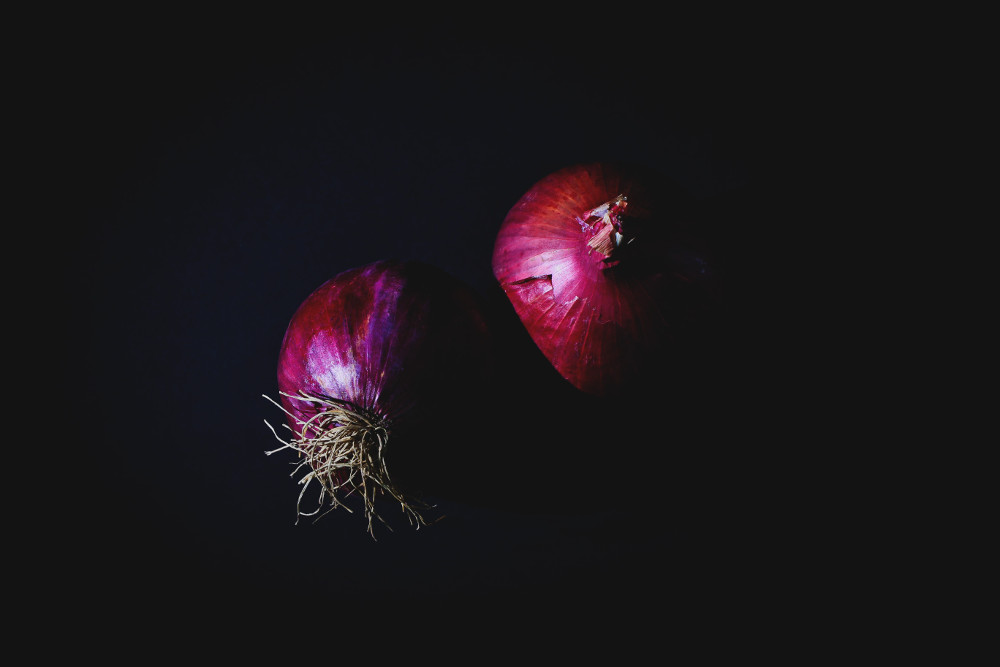
(Unsplash/Thomas Evans)
In The Brothers Karamazov, Russian novelist Feodor Dostoyevsky tells the tale of a guardian angel who wept before God because the woman in his charge had been so wicked that she was stuck in hell. When God asked if she had ever done anything good, the angel said she had once given an onion to a beggar.
God sent the angel to find the onion and to use it to pull her out of hell. The angel succeeded in finding it. The angel held the onion out to the woman, telling her to hold on for dear life. She was on her way when other sinners grabbed her legs to hitch a ride. Then the wicked woman shouted, "It's my onion!", and kicked them away. With that, the onion broke and she and her companions fell into oblivion.
Dostoyevsky's tale comments on today's readings. Our Liturgy of the Word begins with the depressing cry, "Vanity of vanities! All things are vanity!" That's the refrain Qoheleth, a skeptical teacher of wisdom, uses to begin and end his reflection on the worth of human endeavors.
Psalm 90 picks up on this theme and reminds us that we are dust, just as liable to death as the grass of the field. But the psalm also promises that we can find meaning when it prays, "Teach us to number our days aright."
This sets the stage for the Gospel story in which feuding brothers ask Jesus to judge between them, only to hear him expose the pathetic silliness of their ambitions. It's easy to miss Luke's irony in this tale. The two brothers are fighting over an inheritance. That means that someone, presumably their father, has died and that nothing he ever possessed is now of any value to him.
But the bickering brothers ignore the lesson of Dad's demise and invest all their energy into acquiring the stuff that his death had rendered meaningless to him. Like a racecar driver who decides to write a text message while rounding the track, they are hurtling toward their ultimate destination while concentrating on disastrously insignificant details.
These readings, including Paul's suggestion that we "put to death, then, the parts of you that are earthly," could be pretty depressing on a Sunday morning in August. On the other hand, they might be perfect for a relaxing hour in the shade, sitting on a beach, or contemplating the mountains or clouds.
In his classic Man's Search for Meaning, Viktor Frankl, the Austrian psychiatrist and Holocaust survivor, inverts our typical question about the meaning of life. He suggests that it's not ours to ask what life means. Rather, life itself asks us what meaning we will give it.
Jesus told the brothers, "Life does not consist in possessions." Hopelessly shortsighted, they were ignoring the fact that they had already received an incomparable inheritance in the very gift of life. By miraculous processes of nature, their blood flowed, they breathed air, they spoke and could listen, they could dream and grow and establish loving relationships that transform everyone involved.
That is what life consists of and what makes meaning possible beyond the grave.
The brothers were treating the gift of life in the way that Dostoyevsky's wicked woman dealt with her onion. The woman and the boys figured that happiness was a zero-sum game; gain for one necessarily implies loss for the other. Her one-time act of sharing and the salvation it offered taught her nothing; she condemned herself to isolation by refusing to share it a second time. The brothers ignored what their father's death could have taught them about the value of life.
Perhaps the stupidest and best thing the brothers ever did was to ask Jesus to arbitrate their dispute. It was stupid because if they knew anything of Jesus, they should have realized that they were operating out of a set of values he continually denounced. They were in for a lesson they weren't banking on. It was their best move because, just maybe, they would be open to learn from what he would say.
Advertisement
Today's Scriptures invite us to think realistically about "earthly things," about vanities, about onions and bequests, about bigger barns and storage facilities. Frankl invited people to picture themselves on their deathbed and to ask from there how they had given meaning to the one life they had received. That is a way to begin to learn "to count our days aright."
Whether we picture our deathbed, remember the value of an onion, think about the futility of a dead man's big barns, or simply sit to appreciate the grandeur of nature, these August days are made for more than busyness and stuff. Let's make time for the long view.
[Mary M. McGlone is a Sister of St. Joseph currently writing the history of the Sisters of St. Joseph in the U.S.]
Editor's note: Sign up to receive weekly Scripture for Life emails.








